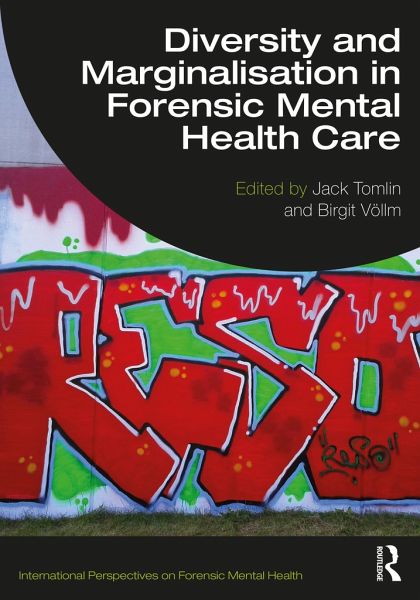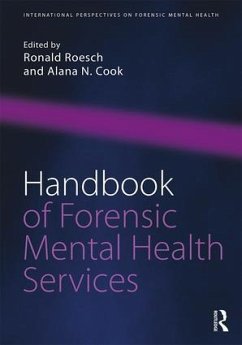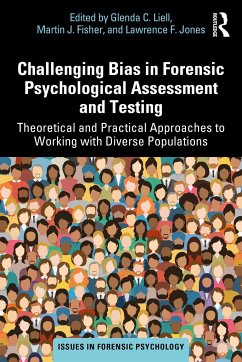
Diversity and Marginalisation in Forensic Mental Health Care
Versandkostenfrei!
Versandfertig in 6-10 Tagen
48,99 €
inkl. MwSt.

PAYBACK Punkte
24 °P sammeln!
This book explores the ways in which diversity and experiences of marginalisation are present in forensic mental health care settings around the globe and suggests ways of moving forward.Forensic mental health services provide care for a group of patients who are marginalised in several respects. Many have experienced childhood adversity and abuse, substance use, serious and chronic mental disorders, poor healthcare education or treatment, inadequate educational opportunities, social isolation, and pervasive forms of stigmatization. On top of these individual experiences of marginalisation, wi...
This book explores the ways in which diversity and experiences of marginalisation are present in forensic mental health care settings around the globe and suggests ways of moving forward.
Forensic mental health services provide care for a group of patients who are marginalised in several respects. Many have experienced childhood adversity and abuse, substance use, serious and chronic mental disorders, poor healthcare education or treatment, inadequate educational opportunities, social isolation, and pervasive forms of stigmatization. On top of these individual experiences of marginalisation, wide diversity exists across patients' socio-demographic, cultural, and clinical characteristics. Chapters in this book discuss these crucial and often sensitive problems, such as working with transgender prisoners, the impact of incarceration for children from non-white backgrounds, cultural and linguistic diversity in forensic settings, and more.
Combining global perspectives, current evidence and case studies, this book will be of interest to patients, carers, practitioners, researchers, and students of forensic mental health.
Forensic mental health services provide care for a group of patients who are marginalised in several respects. Many have experienced childhood adversity and abuse, substance use, serious and chronic mental disorders, poor healthcare education or treatment, inadequate educational opportunities, social isolation, and pervasive forms of stigmatization. On top of these individual experiences of marginalisation, wide diversity exists across patients' socio-demographic, cultural, and clinical characteristics. Chapters in this book discuss these crucial and often sensitive problems, such as working with transgender prisoners, the impact of incarceration for children from non-white backgrounds, cultural and linguistic diversity in forensic settings, and more.
Combining global perspectives, current evidence and case studies, this book will be of interest to patients, carers, practitioners, researchers, and students of forensic mental health.














